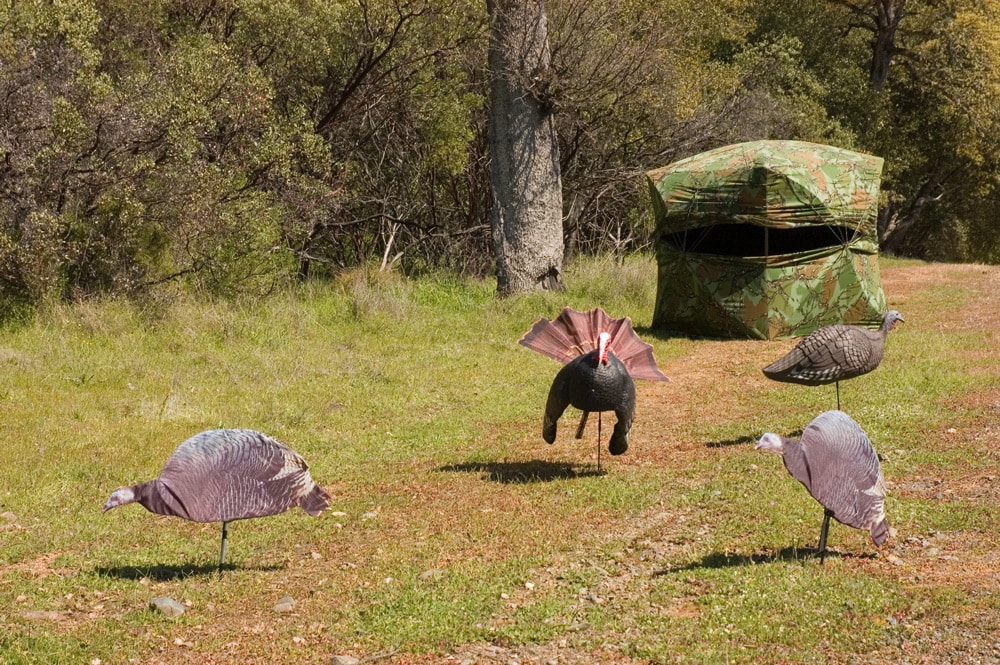
Uncover the secrets of successful hunting with the use of hunting blinds. Learn how to blend in with your surroundings and increase your chances of a successful hunt.
Choosing the Right Hunting Blind
When it comes to turkey hunting, choosing the right hunting blind is crucial. There are several factors to consider before making your decision. First, think about the type of terrain you will be hunting in. If you’ll be in an open field, a ground blind with a wide field of view would be ideal. On the other hand, if you’ll be hunting in dense woods, a smaller blind that is easier to conceal might be a better option.
Another important factor to consider is the size of the blind. Make sure it is spacious enough to comfortably accommodate you and your gear. Additionally, consider the height of the blind. It should be tall enough so that you can easily see out of the windows without being seen by the turkeys.
Lastly, think about the material and design of the blind. Look for a blind that is made of durable and weather-resistant material, as it will need to withstand different weather conditions. Additionally, consider the camouflage pattern of the blind. It should blend in seamlessly with the natural surroundings to avoid alerting the turkeys.
Setting Up Your Hunting Blind
Once you have chosen the right hunting blind, it’s time to set it up in your desired location. Start by finding a suitable spot that provides good visibility and is close to known turkey activity areas. Look for signs such as turkey tracks, droppings, or scratching on the ground.
Before setting up the blind, clear away any debris or vegetation that could obstruct your view or make noise when brushed against. This includes branches, leaves, and tall grass. You want to create a clear shooting lane and ensure that you can move inside the blind without making unnecessary noise.
Next, carefully assemble the hunting blind according to the manufacturer’s instructions. Make sure all poles are securely in place and the fabric is stretched tight. Once the blind is set up, adjust the windows and shooting ports to your desired height and angle. It’s important to have a clear line of sight while still maintaining concealment.
Finally, take some time to brush in the blind. Gather natural materials such as branches, leaves, and grass from the surrounding area and attach them to the blind using zip ties or string. This will help to further camouflage the blind and make it blend in with the environment.
Blending In: Camouflage Techniques
One of the key aspects of hunting from a blind is blending in with your surroundings. Turkeys have excellent eyesight and can easily spot anything that looks out of place. To avoid detection, it’s important to use effective camouflage techniques.
First and foremost, choose camouflage clothing that matches the environment you will be hunting in. Camouflage patterns are designed to mimic the colors and patterns found in nature. For example, if you’ll be hunting in a wooded area, opt for camouflage with shades of brown and green. If you’ll be hunting in a grassy field, choose camouflage with shades of tan and brown.
In addition to clothing, consider using face paint or a camouflage face mask to conceal your face and any exposed skin. Turkeys are particularly good at spotting movement, so it’s important to keep as still as possible. Avoid sudden movements and try to blend in with the natural surroundings.
Another effective camouflage technique is to use natural vegetation to further conceal your blind. Gather branches, leaves, and grass from the surrounding area and attach them to the blind using zip ties or string. This will help to break up the outline of the blind and make it blend in seamlessly with the environment.
Remember, the goal is to become invisible to the turkeys. By using the right camouflage techniques, you can increase your chances of a successful hunt.
Tips for Hunting in a Blind
Hunting from a blind requires a different approach compared to hunting without one. Here are some tips to help you make the most of your hunting blind:
– Be patient: Turkeys can be cautious and may take their time approaching the blind. It’s important to remain patient and wait for the right opportunity to take your shot.
– Use decoys: Setting up decoys near your blind can attract turkeys and provide a distraction, increasing your chances of a successful hunt. Make sure to place the decoys in a realistic manner to make them more enticing to the turkeys.
– Practice shooting from the blind: Shooting from a seated position inside a blind can be different from shooting in an open field. Take some time to practice shooting from your blind before going on your hunt. This will help you become familiar with the angles and limitations of shooting from a confined space.
– Stay concealed: It’s important to remain still and avoid making unnecessary movements while inside the blind. Turkeys have sharp eyesight and can easily detect any movement. Stay hidden and only move when necessary.
By following these tips, you can increase your chances of a successful hunt while hunting from a blind.
Maintaining Your Hunting Blind
To ensure the longevity and effectiveness of your hunting blind, it’s important to properly maintain it. Here are some maintenance tips to keep in mind:
– Clean and dry the blind after each use: Remove any dirt, debris, or moisture from the blind to prevent mold and mildew growth. This can be done by wiping down the blind with a damp cloth or using a mild soap and water solution.
– Check for any damage: Regularly inspect the blind for any signs of wear and tear, such as holes, tears, or broken zippers. Repair or replace any damaged parts to maintain the integrity of the blind.
– Store the blind properly: When not in use, store the blind in a cool, dry place away from direct sunlight. This will help prevent fading and damage to the fabric.
– Reapply waterproofing spray: Over time, the waterproofing properties of the blind may diminish. To ensure maximum protection against the elements, periodically reapply a waterproofing spray to the fabric.
By following these maintenance tips, you can ensure that your hunting blind remains in top condition for many successful hunts to come.






